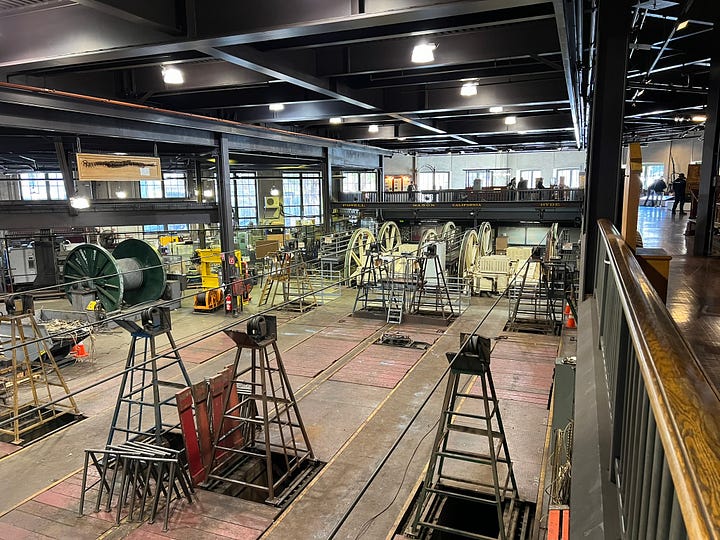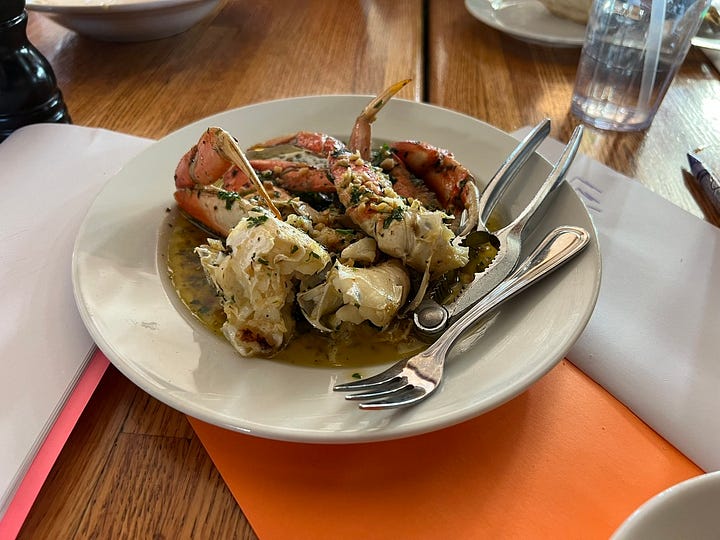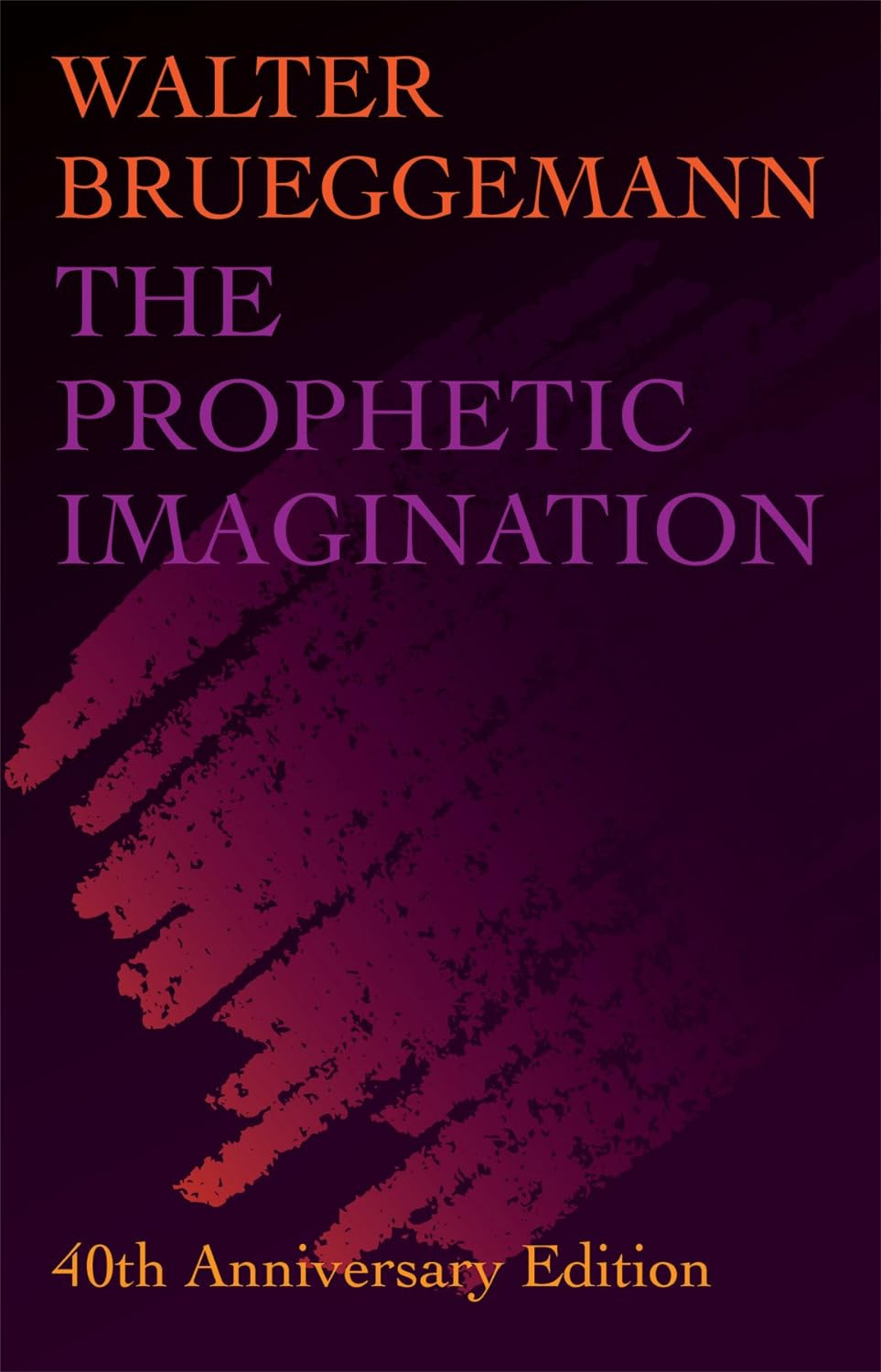Thank you for being here. As always, these essays are free and publicly available without a paywall. If you can, please consider supporting my writing by becoming a patron via a paid subscription.

I'm feeling challenged this week. Most of the time it’s good to live in a state of relative stability, to get into the groove and not think too much about the big questions of life and the answers that we've built our lives on. It's not exactly healthy to constantly wrestle with existential questions.
And yet, every so often, it's a good idea to be jolted out of this state of comfort. The question is not so much to ask whether there is a better way to live but to revisit our core values, reexamine what we think a meaningful life is made of, and candidly assess how well we are living out our stated commitments.
One thing I appreciate as an academic is the rhythm of the school year. The end of each semester and each academic year provides an opportunity to take stock of aspirations and revisit the alignment between our goals and my practices. In light of this, the Praxis Summit that I attended last week was well-timed. The three-day event was full of challenging exhortations that encouraged me to reconsider and re-articulate my core values as I consider the way that those core values are aligned with the practices of my daily life.
After spending the last few days distilling my takeaways, I've arrived at one central conviction: I want to double down on chasing the redemptive edge in my life. For the rest of today’s post, I want to unpack the idea of the redemptive edge and explain why it’s meaningful to me.
The Absent-Minded Professor is a reader-supported guide to human flourishing in a technology-saturated world. The best way to support my work is by becoming a paid subscriber and sharing it with others.
I've written before about Praxis and their work. It's been a joy and a privilege to engage with them more directly over the past few months, starting with the forum they hosted on redemptive AI at the beginning of April and most recently at their annual Summit event.
It's a challenge even now for me to concisely describe what Praxis is, but I think part of that is an intentional part of their ethos. There is something about the very DNA of the organization that illustrates the idea of allostasis or dynamic equilibrium. Praxis seeks to cultivate a community of people who are constantly exploring ways to live more deeply into their calling.
At its core, Praxis is geared toward helping entrepreneurs address the major issues of our time through redemptive action. The first part of this is identifying what the major issues of our time are. Praxis organizes these into five broad categories:
Who We Are
Where We Live
How We Work
What We Face
Where We're Going
In each of these buckets, they've identified specific areas where they want to foster innovation. They call these opportunities for redemptive imagination (ORIs for short). ORIs are analogous to blue oceans where there are opportunities to support human flourishing through new entrepreneurial ventures.
Praxis: Think and Do
The ORIs are a good demonstration of how Praxis approaches issues: think and do. The thinking part is the redemptive imagination. This is motivated by a desire to see things made new in the world in the pattern of creative restoration through sacrifice. It’s all anchored on the redemptive frame.
While Praxis articulates this through the lens of the Christian worldview, it is not exclusively so: there are many examples of leaders both inside and outside of communities of faith modeling the pattern of creative restoration through sacrifice.
A core part of creative restoration through sacrifice means that repairing the brokenness in our world is not without a cost. Making things right doesn't come for free. Many areas of brokenness might be addressed, but here are a few of the ORIs that Praxis has chosen to focus on.
The full list of ORIs gives you some ideas of where there are opportunities for redemptive action. The next question is a personal one: what will you do about it?
As I consider how I might chase the redemptive edge in my own quest as an educator, engineer, and writer, I'm looking back at my reflections from last summer on finding a good quest and considering once again how I might re-risk instead of de-risk, embrace a long-term view of cultivating change and exploring opportunities for creative restoration through sacrifice.
In this process, inspired by Summit and Dave's 2024 annual letter, three main ideas have risen to the surface:
Proximity: Pay attention to your square mile
Community: Pursue scenius, not genius
Sacrificial Blessing: Go beyond the win-win
For the rest of this post, I want to explore what each of these ideas means to me and how I’m thinking about living them out.
1. Pay attention to your square mile
Investing in the proximate is a natural way to re-risk. While at first glance the areas closest to us might seem to carry the least risk, this initial read is deceptive.
Investing in the areas nearest you heightens the consequences of failure. It's one thing to go into another community, place, or company and suggest change. If it works out, great. If it doesn't, you leave. But investing in your neighborhood and finding ways to engage in the work that is happening there carries many risks.
When you're working close to home, you're rooted there. When the work that you are doing fails, it's much different when the people who see it and are affected are your neighbors, the people who live down the street or across town from you. Investing in the proximate means that your successes and failures will be seen by those who know you. Failure has consequences in the proximate.
The external consultant demonstrates this. External consultants are the antithesis of proximity. It is often a way for those in the proximate to externalize the risk of the work they are doing. Bringing in someone external provides an avenue for voicing opinions that may be unpopular while simultaneously allowing those who are rooted in the local community to avoid potential blowback.
Instead of bringing in a consultant, we should consider ways to do the opposite. How might we leverage our proximity to the issues to speak into them with greater care and engagement? How might our closeness to the geographic and emotional center of a particular problem shape the way that we take it on? How might our accountability and responsibility to those in our community influence the way we go about fostering change?
2. Build scenius, not genius
The second idea that I've been pondering is the importance of community.
has popularized the concept of scenius or communal genius. The idea is that much of the great work of art, science, or other cultural engines happens not because of a lone individual genius, but because of the network. Instead of talking about genius as a person, Kelly talks about the impact of a group of people coming together with a common mission to inspire one another.In many ways, I think this is what has drawn me to Praxis. They are self-proclaimed connectors, positioning themselves as ecosystem builders to connect entrepreneurs with mentors, funders with ventures, and the entire community together as they work to understand and address the issues of our time.
Opportunities for redemptive imagination cannot be tackled by any one person. They require coordination, collaboration, and a community that goes beyond any single person or skill set.
So, in light of this, I'm asking myself what networks I need to help cultivate. Where is my scenius? Who are the people in my spheres of influence who, through connections with each other, might synergistically address the opportunities in our world?
3. Don't settle for the win-win
Finally, as I think about how to re-risk my own quest, I'm considering how to go beyond the win-win scenario. It's not that the win-win scenario is bad. Finding ways to help our colleagues succeed while simultaneously helping us to succeed is admirable.
And yet, there comes a point where the win-win approach limits our potential for creative restoration. What if instead of focusing on winning, we considered ways where we might voluntarily sacrifice our own interests to bless those around us?
In my own life, I'm wondering how this idea of sacrifice might enable me to better serve the people in my spheres of influence. How might I consider giving of my time, talents, or financial resources to support those around me? What would it look like to be creative and strategic about that sacrifice, exploring the unique ways that I might be positioned to elevate the efforts and work of those around me?
Ultimately, as a Christian, these describe aspects of following Jesus.
Jesus drew near to those whom he cared for.
Jesus recognized and cultivated community in ways that fostered communal genius.
Jesus understood and embodied sacrifice.
At its core, my chase for the redemptive edge is a pursuit of him.
Recommended Reading
Dave Blanchard's 2024 Praxis community letter on redemptive response.
At Praxis, we have long discussed the idea of creative response, linked with the late Rabbi Jonathan Sacks’s idea of becoming a “creative minority” — the idea that we can stay engaged with the world while maintaining our own faithful distinctiveness.
My greatest hope for our community is that we would be creative peacemakers and assertive culture shapers to both society and souls, bringing faith, hope, and love to a world full of doubt, anxiety, and bitterness.
A redemptive thesis for AI authored by Andy Crouch with contributions from Dave Blanchard and the folks who gathered with me last month at the Redemptive AI forum. The six redemptive directions:
Redemptive AI will inform but not replace human agency.
Redemptive AI will develop rather than diminish human cognitive capacity and extend rather than replace education.
Redemptive AI will respect and advance human embodiment.
Redemptive AI will serve personal relationships rather than replace them.
Redemptive AI will restore trust in human institutions by protecting privacy and advancing transparency.
Redemptive AI will benefit the global majority rather than enrich and entrench a narrow minority.
A case study from the life and work of Mike Bontrager on embracing influence in proximity.
The Book Nook
At Summit, Praxis had a bookshelf of recommended books from which attendees could grab something to add to their library. I looked for the oldest book I could find. I think that Brueggemann took the cake (no Trueblood unfortunately).
I’ve just barely cracked the cover, but am looking forward to digging in in the weeks to come. I still owe you my reflections on Trueblood’s Alternative to Futility which feels like it will be a nice pairing with this text.
The Professor Is In
The semester is over, the students have graduated, and the summer has begun. Excited that my first summer research student started yesterday and looking forward to five of the remaining six students starting next Monday. Promises to be a fun summer!
Leisure Line




A few photos from various places along our trip from LA to Napa and back last week. Lots of good times and good food!
Still Life




A few more photos from the top of Coit Tower in SF and from a stop at the excellent Monterey Bay Aquarium on the way home.






Thanks for the reminder that win-wins do not always fit a paradigm of faith -- having been trained in negotiation, it was sometimws difficult for me to see past the potential of multiple yes's except when everyone's strained. And happy summer vacationing to you and yours 🙂